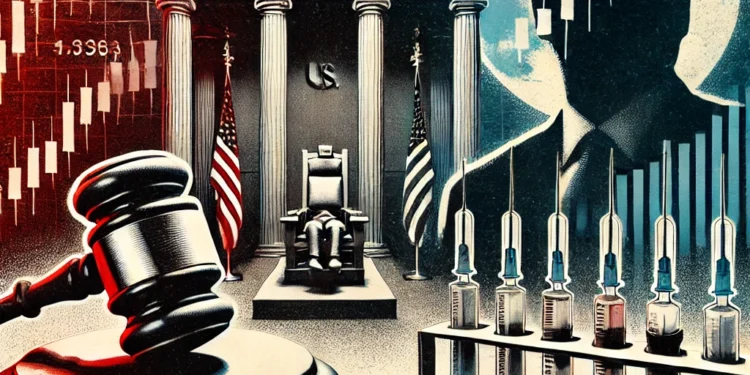Donald Trump has been a vocal proponent of the death penalty, advocating for its expansion and faster executions. If Trump were to return to office, policies around capital punishment could shift in ways that impact certain industries—including pharmaceutical companies that manufacture lethal injection drugs, private prison operators, and firms involved in correctional facility services.
Lethal Injection and the Pharmaceutical Industry
Lethal injection has been the primary method of execution in the U.S., though access to the necessary drugs has become increasingly restricted as pharmaceutical companies distance themselves from capital punishment. However, a shift in policy could bring renewed focus to companies that manufacture or distribute drugs used in executions.
- Pentobarbital (Primary Execution Drug)
One of the most commonly used drugs in lethal injection protocols is pentobarbital, a barbiturate that induces unconsciousness and respiratory failure. The drug was historically manufactured by Hikma Pharmaceuticals (HIK.L, HKMPF) and Akorn Pharmaceuticals, though many companies have ceased supplying it for executions. - Alternative Drugs
Other drugs used in past executions include midazolam (Pfizer, Bayer) and potassium chloride (manufactured by several generic drugmakers). However, these drugs have faced legal challenges over their effectiveness.
Private Prison Stocks & Execution Facilities
A Trump administration could also increase support for private prison operators, some of which have historically housed death row inmates and could see increased government contracts. Key publicly traded companies include:
- CoreCivic (CXW) – One of the largest private prison operators in the U.S., CoreCivic manages some facilities where death row inmates are housed.
- The GEO Group (GEO) – Another major private prison company, GEO Group could benefit from policies favoring private correctional facilities.
Execution Equipment & Security Firms
Beyond pharmaceuticals, companies involved in the manufacturing of execution chambers, security systems, and surveillance technologies used in maximum-security prisons could also see increased demand. Some firms that provide correctional facility infrastructure include:
- Axon Enterprise (AXON) – Known for producing tasers and body cameras, Axon also provides technology solutions for law enforcement and correctional facilities.
- Allied Universal (private company, but has investment arms and security service partnerships with public firms like Securitas AB) – Provides security services to government facilities, including prisons.
The Bottom Line
While investing in death penalty-related stocks is controversial, changes in policy—especially under a Trump administration—could impact these industries. Investors should consider the ethical implications and political risks, as public sentiment and legal challenges could shift the landscape for companies involved in capital punishment.





















